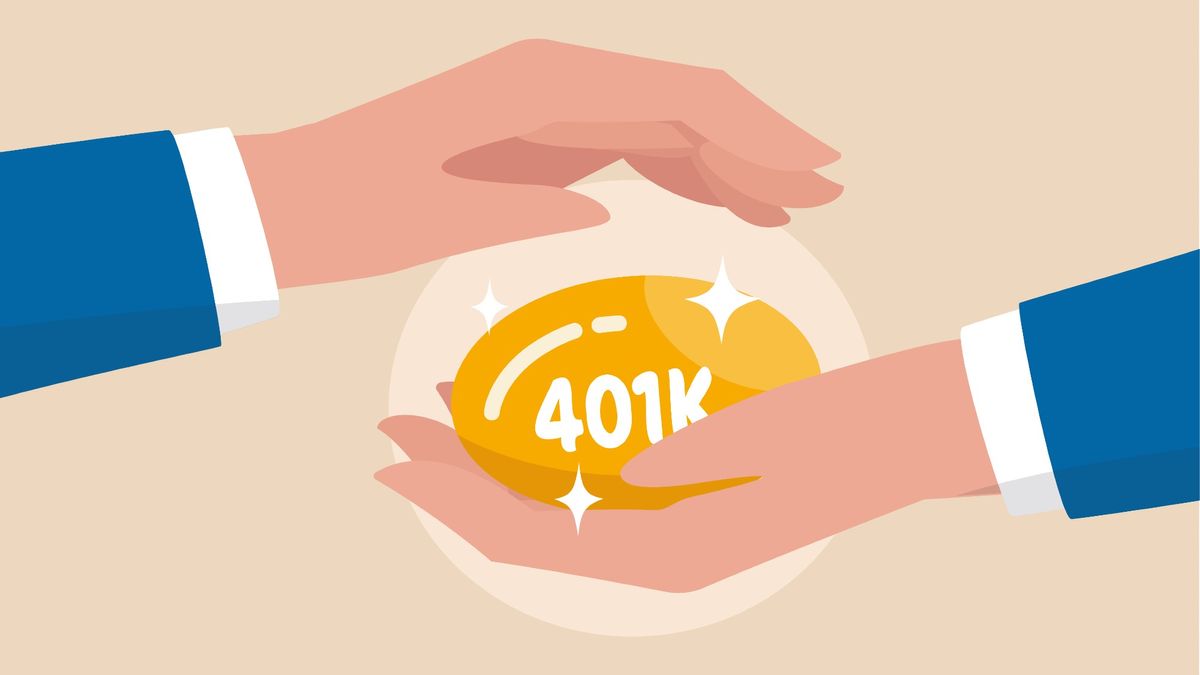Leaving a job can bring a lot of change: You will have new colleagues, maybe a different salary and job title, and even different hours and responsibilities. But one major impact that switching jobs can have that many people overlook is on their employer-sponsored retirement plan.
A change in job can have big implications for your 401(k). In fact, the “majority of people who change jobs wind up putting less of their pay into their 401(k)s, often without realizing it, according to new research from Vanguard Group,” simply because “many job switchers either forget to sign up for the 401(k) plan, or get auto-enrolled at a lower savings rate,” said The Wall Street Journal. This can majorly drag down your overall retirement savings — “over a four-decade career, that can mean as much as $300,000 less in retirement wealth for someone with average pay,” said the Journal of Vanguard’s findings.
Changing jobs can also bring about great things for your career — so how can you navigate the switch without negative effects on your retirement savings?
Subscribe to The Week
Escape your echo chamber. Get the facts behind the news, plus analysis from multiple perspectives.
SUBSCRIBE & SAVE
Sign up for The Week’s Free Newsletters
From our morning news briefing to a weekly Good News Newsletter, get the best of The Week delivered directly to your inbox.
From our morning news briefing to a weekly Good News Newsletter, get the best of The Week delivered directly to your inbox.
What happens to your 401(k) when you leave a job?
When you leave the job where you have your 401(k) plan, you have a handful of options for what to do with your account.
If your 401(k) balance is under $7,000 and “has less than $1,000 vested in it when you leave, your former employer can cash out your account or roll it into an individual retirement account (IRA),” said Fidelity. In certain situations, “if your vested balance is between $1,000 and $7,000, your former employer may also be eligible to perform an automatic rollover to your new employer’s retirement plan.”
If you have “at least $7,000 vested in your 401(k),” you will have several options, said Fidelity:
Keep your account with your former employer. Just because you are leaving your employer does not mean your 401(k) has to. “If you have more than $7,000 invested in your 401(k), most plans allow you to leave it where it is after you separate from your employer,” said Investopedia. Doing so “may be a good idea” if “you have a substantial amount saved and like your plan portfolio.”
Move your funds to another retirement account. Another option is to “roll over your old 401(k)’s funds into a new 401(k) account, if your new employer allows this,” said NerdWallet. You might also consider rolling over your 401(k) balance to a traditional or Roth IRA, which “may have more investment choices than your employer’s plan allowed and let you continue contributing to your retirement account provided you have earned income,” said Fidelity.
Cash out your 401(k) balance. While “rarely recommended” due to the downsides, “you can withdraw cash from your 401(k) whenever you want,” said NerdWallet. Just keep in mind that doing this “can trigger hefty taxes” and if you are not yet 59 years old, your withdrawals “are slapped with a 10% penalty tax.”
How can you determine the best option for your 401(k) funds?
Ultimately, what you decide to do with your account “depends on your goals and personal preferences,” said Fidelity. It is also important to “make sure to understand the rules for your old account and the new account before deciding.” And obviously, your current 401(k) account balance will impact what options are available to you.
It can help to compare the specifics of your other options, such as your new employer’s 401(k) plan and an IRA, against your existing workplace retirement savings plan. Assess the “quality of your new company’s retirement plan versus your former plan in terms of investment options, fees and whether loans are permitted,” said Bankrate. For an IRA, consider what “investment options [are] available to you in an IRA outside of your employer’s plan.”
Even if your job departure is imminent, the timeline for your 401(k)-related decisions can be a little longer. After you leave, said Investopedia, “your 401(k) will stay where it is until you decide what you want to do with it.”









/cdn.vox-cdn.com/uploads/chorus_asset/file/25336519/STK450_EU_G.jpg)
